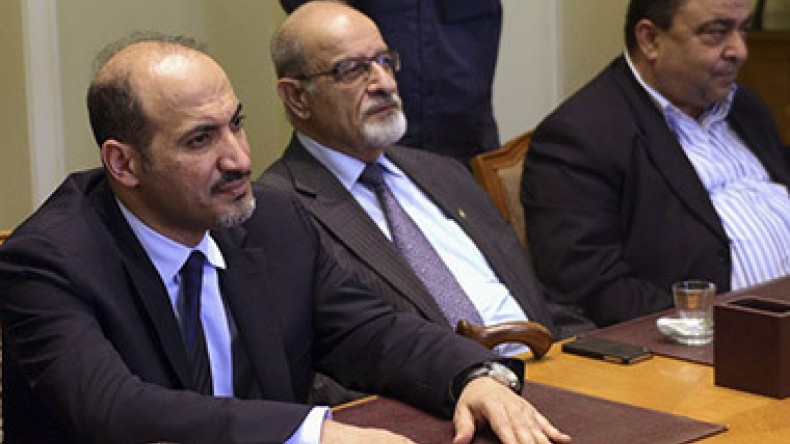
‘Syrian National Coalition lives luxurious lifestyle’
Press TV talks with Webster Griffin Tarpley, an author and historian in Washington, regarding the millions of dollars Riyadh has reportedly allocated to set up a so-called transitional government for Syria.
- How do you see this Saudi move? Certainly, it seems to be supporting this SNC with a lot of money behind it.
- We are seeing a very distinct pattern that is now developing and it is the idea that we have the former imperialist powers like the Suez powers of 1956, the British and the French, the Sykes-Picot powers of World War I, these two left imperialisms.
The British and the French [are] joining together with Saudi Arabia and the United States instead is gravitating, believe it or not, towards Russia at least on some items. This idea of having a Syrian provisional government was something that the United States did not want.
Kerry, if we can believe the news account, Secretary Kerry tried repeatedly to stop this from happening, saying that this was a way for these rebels of Syria to try to block the convening of the Geneva conference but they have now gone on and have done it.
[Laurent] Fabius of France thinks that this is a wonderful thing and also the spokesman for the British foreign office thinks that they are wonderful things. Now of course that sets up this conflict.
As for the Syrian National Coalition themselves, we can see 50 million dollars a month that buys a lot of champagne, caviar and God knows what. These are people who live in hotels; they live a luxurious lifestyle; I guess we can call them lounge lizards, parasites, adventurers and they are going to oppose now as long as and until the money runs out, as the government of Syria. But simply this has no credibility.
I also wonder how happy Turkey is to have this gang on their soil because wherever these people go, crime seems to show up, right? Sarin gas, arms and other problems seem to multiply around them. So I do not think this is an experiment likely to be very successful.
- So then going forward, what do you think will happen with this experiment, as you call it?
- That depends on the battlefield and right now the battlefield could hardly look worse for the rebels. The news reports today are that the liberation of Aleppo may now be, if not in hand, at least in sight.
We have got the Syrian army with its supporters from Hezbollah and perhaps from Iraq and elsewhere have now essentially cleared the highway that leads into Aleppo from the south, taking the strategic villages.
There might be one village where the rebels are able to hold on and at the same time, the Syrian army is making big progress in 4 or 5 suburbs of Damascus and the rebels are, in the north especially, so frightened that they are putting on hysterical calls that everybody has now got to unite, of course what they have never been able to do.
Everybody should unite, they say, to try to prevent the fall of Aleppo. If you get the fall of Aleppo and the loosening of this ring of terrorists around Damascus, I think what you will essentially see then is the beginning of the end of the military rebellion in Syria and getting into a phase of mop-up where the position of the rebels would become critical, desperate.
Newsfeed
Videos






























